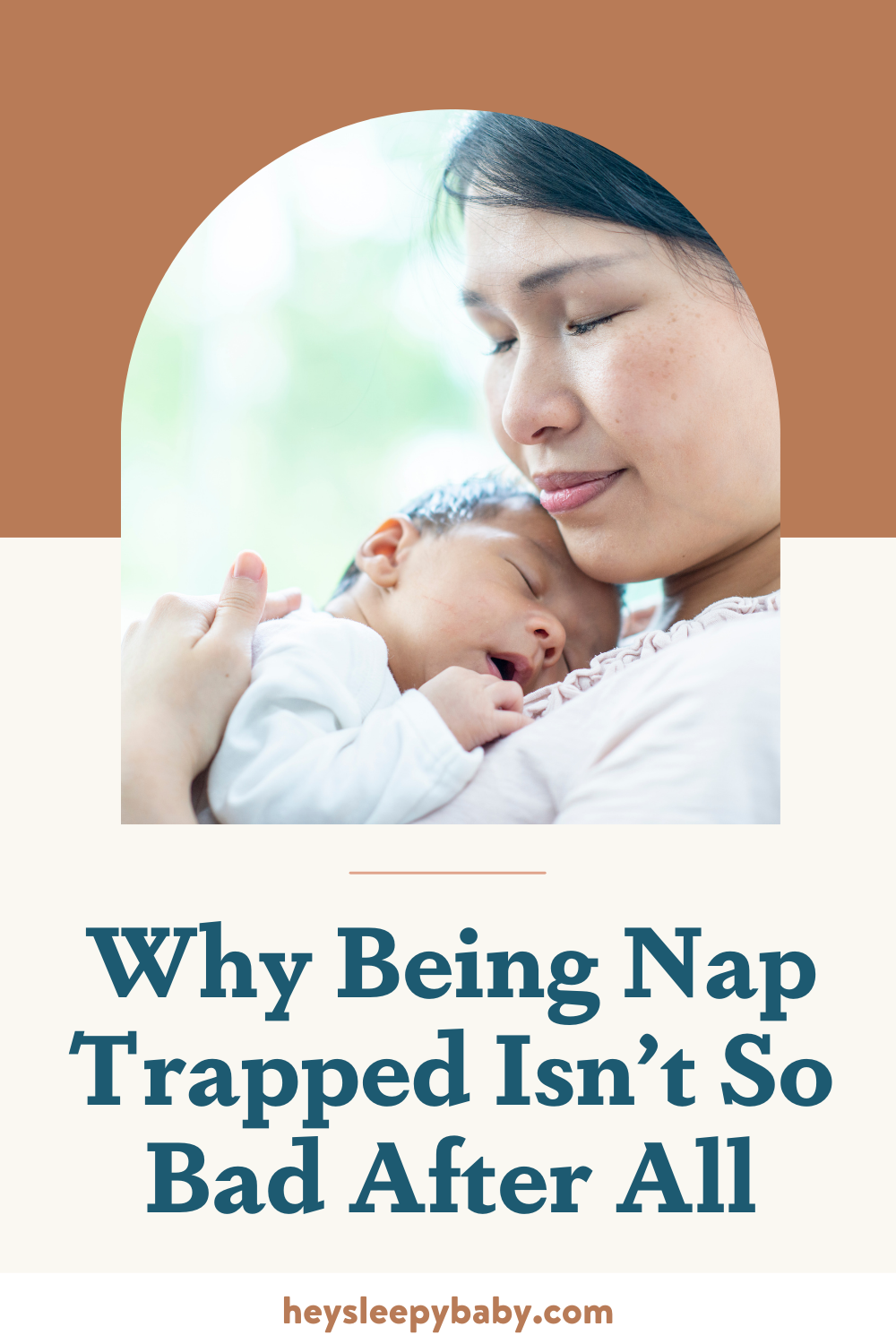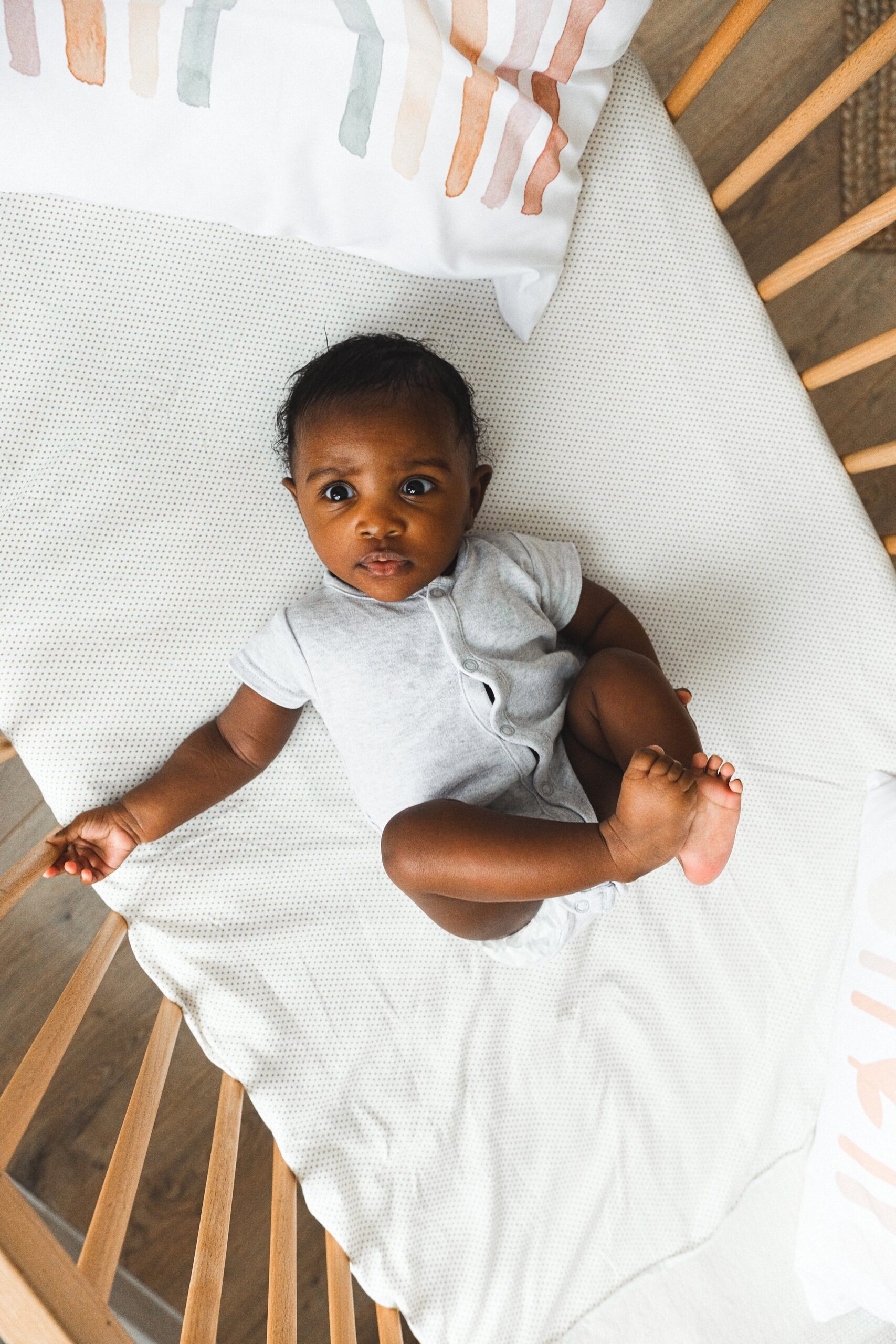I'm Rachael
Mom of 3 & Baby Sleep Expert with Big Sis Energy
& I’VE DONE ALL THE RESEARCH FOR YOU ALREADY.
Better sleep for the entire family
BROWSE COURSES
hey!
Why Being “Nap Trapped” isn’t So Bad After All
July 1, 2022
Babies love to contact nap, but as a caregiver it can be stifling. Discover why I love contact napping, and what you can do if you’re ready to stop.
Contact napping is not a bad habit
With my firstborn, I worried so much about setting up ‘bad habits’ around naps.
One of my main concerns was letting him sleep on me, or contact nap. I worried about whether this would stop him from being able to achieve independent sleep.
I could also see the ever-increasing housework and chores, which I felt would never get done if I allowed him to take a contact nap.
When chatting to my new mom friends, it seemed as though my baby was the only one who wouldn’t sleep in his crib.
What I wish I’d known about naps as a new mom
-
Not all babies like napping in their crib
-
It can seem impossible to transfer a sleeping baby from your arms to their crib
-
Contact sleep is not ‘bad’ sleep
-
Allowing your child to contact nap will not impact on their future ability to sleep independently
-
Having a clean and tidy house is not a measure of being a good mom
I now have two children. If I could go back in time, I would tell the new mom version of myself to stop worrying about getting ‘nap trapped’.
It’s easy to see why I worried – a quick Google search quickly brings up a ton of articles telling us how contact napping leads to bad habits. And let’s face it, most new moms spend a lot of time looking stuff up on Google! But experience tells me something different.
I’ve been a mom for almost five years now, so let’s expand a little on what I’ve learned about being nap trapped.
Contact naps are normal
Your baby spent nine months’ curled up in your womb, so why wouldn’t they want to be close to you?! And the same applies for you – you’ve carried your baby for nine months, so why wouldn’t you want to hold them close. It’s biologically normal, and you are the ideal sleep environment for your baby.
After all, you’re warm, they can hear the familiar sound of your heartbeat and breathing, they can smell your scent, and they can feel your soothing touch. So, even though today’s culture seems to place independent sleep high on the priority list, it offers few benefits to your baby.
Being productive during nap time is overrated
Stop worrying about getting stuff done. Keeping your baby close during naps is an important job in itself. It’s not easy, and it doesn’t receive the recognition it deserves. Try to redefine nap time in your mind. Instead of thinking about it as a time to get stuff done or be productive, reframe it as your own time to relax. If you need to get things done, try to avoid putting it all off until nap time.
My first baby loved to be carried, so babywearing was a good way to do chores while he was awake. My second baby, not so much – although she was happy to sit independently in a safe space while I got a few jobs done. The bottom line, every baby is different, so figure out what works best for your family. If you have an older kid, get them involved in the housework – sure, they might not be the most productive, but they will pick up some great new skills from observing and helping you.
It’s important to be prepared!
There’s nothing worse than being nap trapped off guard. Just before naptime, ensure your own needs are met. Grab yourself a tasty snack, fill up your water bottle, and make sure you go to the bathroom. Ensure your phone, headphones, charger, book or magazine, and TV remote are close to hand, and set up a safe co-sleeping or bed sharing space if you’re planning on taking a nap yourself. There’s nothing worse than realizing you need to pee in the middle of your baby’s nap! If you set up a floor bed, you might even be able to sneak away and get stuff done once your baby is fast asleep. But only if you want to! These portable blackout curtains are great for naptime on the go (use code heysleepybaby for 10% off).
This is just a season
In the early days, I wish I’d just accepted that my baby wanted to nap on me. I was his safe space, and if I’d accepted that this was just a phase or a season, I could have saved myself a lot of stress. He’s almost five now, so naps are a thing of the past! My daughter is almost two, and I try my best to enjoy the contact naps. They don’t last forever, and I’m pretty sure I’ll miss them when she decides to stop napping. Like anything, naps are a journey, and contact napping can be a great tool to allow yourself the downtime you need.
That’s great, but I feel as though I’m constantly stuck under a baby!
I get it. Contact napping is not for everyone. Parenting can feel overwhelming at the best of times, and feeling like you need some personal space is normal. If you want to try something different, you might try for a nap in the stroller. This will allow you to enjoy some fresh air and exercise while your baby is asleep.
If contact napping isn’t working for you, don’t despair. There are things you can do, but you need to take your baby’s age and personality into consideration when forming a plan.
Setting up a safe space for bed sharing should be your number one priority. Considering a floor bed is a great place to start. You can try getting them to sleep using contact, then sneak away once they’re asleep – just make sure the environment is fully baby-proof and set up a video monitor so you can keep an eye on them.
How to stop contact naps
If you’re ready to start shifting away from contact napping, our Crib Guide is a great place to start.
It’s usually best to begin with the ‘easiest’ nap of the day, or the one where you have the least trouble getting your baby to sleep. The first nap of the day is often a good choice – if they don’t nap for long, you can support them with a longer contact nap later in the day.
The bottom line? Contact napping is normal and healthy, for both baby and parent. If you enjoy contact napping and it means your baby sleeps well, then it’s the perfect option for you both.
You don’t have to choose an all or nothing approach. If you want to shift away from contact naps, you might try supporting your baby to sleep initially, then moving away once they are in a deep sleep. Just be realistic about your expectations – any changes to your baby’s sleep schedule can cause a little disruption.
Was This Helpful? Save It For Later!

binge reads
We think you'll love these
You deserve to the
baby stage, not just "survive it."
And you DON'T have to sacrifice your values, ignore your instincts, or force yourself to follow a method you don't align with just to get your baby back to sleep.
I’m here to help you create a restful, sustainable sleep environment that honors both your baby’s needs AND your own (without the stress OR the guilt!) because, no, you don’t have to choose between the two.
enjoy!
BABY SLEEP COURSES →
BABY SLEEP CONSULTS →
Wish you could help your baby sleep better without resorting to sleep training? Download my FREE guide to a good night’s sleep and learn 8 simple, science-backed tips for supporting your child’s needs.
Traditional sleep training methods don’t have to be your solution to better sleep.
SLEEP TRAINING ISN’T THE ONLY WAY TO GET GOOD SLEEP
Hey, I'm Rachael and Hey, Sleepy Baby is for parents who want to get their nights back, without sleep training their babies.
NO ONE TOLD US POD
explorING the untold truths of parenting







